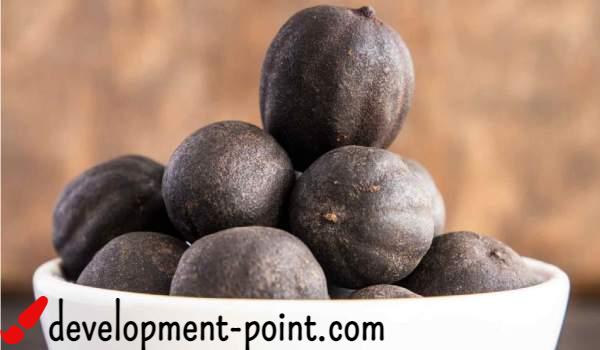A natural expectorant using herbs and home recipes
Mucous membranes form mucus in order to protect the respiratory tract from dust, allergens, and viruses. When a person is healthy, the mucus is thinner and less visible. In the event of an infection, phlegm becomes clearer and thicker. So if phlegm makes you feel uncomfortable, you need to Mucolytic Which can be used with herbs and home recipes.
Causes of sputum
Before getting to know the best natural mucus thinner, you should first know that one of the most important reasons that may lead to increased mucus or phlegm are:
Best expectorant
It is considered one of the best home remedies for expelling phlegm:
1. Drink warm fluids
Warm drinks provide immediate relief from symptoms associated with infection such as sneezing, coughing, and sore throat. So, make sure to take advantage of drinking the following drinks:
- warm water
- Lemonade
- chicken soup
- Herbal tea
- Warm fruit juice
- Caffeine free tea.
2. Gargle with salt water
Gargling with warm salt water helps expel phlegm and relieve the associated symptoms. All you have to do is add half a teaspoon of salt to a cup of warm water and stir until it dissolves. Then gargle when needed for about 30 seconds.
3. Saline nasal spray
Using a sterile saline spray that contains only sodium chloride may help clear mucus and allergens from your sinuses.
4. Honey is an expectorant
Honey, like buckwheat honey, is a natural expectorant, as it has antibacterial and antiviral properties. Which helps to calm the pain of the throat and relieve symptoms. All you have to do is eat one tablespoon of honey daily, but it is not recommended to use it with children under the age of one year.
5. Apple cider vinegar
Apple cider vinegar is a powerful antibacterial agent, which helps prevent phlegm buildup. It also helps maintain a healthy pH balance. You can use apple cider vinegar either by gargling with it or by mixing it with water.
Herbal phlegm treatment
It is considered one of the natural herbs and safe foods, which have been widely used in order to treat phlegm stuck in the throat and treat the common cold, as follows:
- Ginger: Which can be used as an expectorant and antihistamine.
- the Garlic: Garlic contains antimicrobial properties, which helps fight viral, bacterial and fungal infections that cause more phlegm to be produced.
- Onion: Onion has been known to treat cold symptoms, cough, fever, and sore throat.
- Lemon: Drinking lemon and honey may help soothe your respiratory system. All you have to do is mix a tablespoon of honey with 2 tablespoons of lemon juice, which helps reduce congestion and dissolve phlegm. Honey contains antibacterial properties, while lemon is a rich source of Vitamin C.
- Turmeric: Turmeric contains the compound curcumin, which gives it powerful antibacterial properties. So if you are looking for a mucus solvent, you can mix a teaspoon of turmeric with half a teaspoon of salt and add it to a cup of warm water, which will help you expel phlegm.
- Chili pepper: Eating spicy foods that contain capsaicin, such as hot peppers, can help get rid of cough and expel phlegm.
- Guava leaf: Guava leaves are characterized by their high levels of iron and vitamin C. A decoction of guava leaves is considered a natural expectorant, as it helps to expel phlegm, relieve coughing, and clean the respiratory tract and lungs.
Some studies also indicate the effectiveness of some foods in helping to treat respiratory viruses that cause increased sputum, such as:
- Guava
- pomegranate
- berries
- Licorice root
Mucolytic by volatile oils
Some essential oils can help expel phlegm and stop the growth of bacteria that may infect the respiratory system. Among the types of these oils:
And volatile oils are used by inhalation, or added to hot water when inhaling steam. It can also be used topically by applying the mixture to the chest. But you should not overuse or put oil on inflamed or infected skin.
How to prepare
Use 12 drops of carrier oil with 1 or 2 drops of essential oil. The diluted oil is then applied directly to the chest.
Notice: In the event that you use volatile oils, you must first dilute it with one of the carrier oils, such as coconut oil and jojoba.
It should also be tested first on a small piece of skin before use to ensure that there is no allergic reaction to it. In addition, it should not be taken orally or in contact with the eyes.
Mucus solvent by steam
Keeping the air moist can help relieve congestion, coughing, and phlegm. Among the methods used:
- Steam inhalation: This is done by using a bowl filled with hot water, leaning on the bowl, and then placing a towel over the head to contain the steam. Steam inhalers for this purpose are also available in the market.
- hot water bath: When you fill a bathtub with hot water or use a sauna, the room is filled with steam. When inhaling steam, this may help relieve symptoms. And preferably when finished drink a glass of water to prevent dehydration. But you have to be careful when trying this method, because a large increase in steam may lead to suffocation.
How to prevent sputum accumulation?
Follow the following tips in order to reduce phlegm buildup:
- Minimize the use of decongestants, which may make it difficult to get rid of phlegm.
- If phlegm is present, avoid caffeinated beverages.
- Avoid eating foods that may cause GERD, which may increase phlegm and sore throat.
- Avoid exposure to allergens such as animal dander, dust, and chemicals.
- Quit smoking and avoid secondhand smoke.
- Wash hands frequently to protect against viruses.
- Taking some nutritional supplements can also help reduce symptoms of the common cold and relieve congestion, including zinc, vitamin C, and probiotics.
However, in the event that a natural expectorant is used and the condition does not improve using home remedies, it is recommended to consult a doctor for an accurate diagnosis and to determine the appropriate treatment prescription for the disease.

